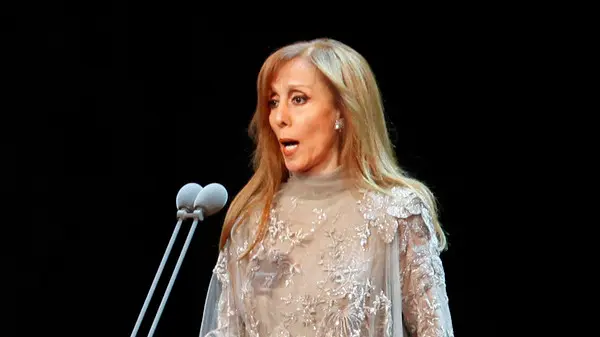People in the Middle East call her ‘the sound which comes from the sky’ The 88-year-old Lebanese singer was able to carve out her position not as a singing voice, but rather because she presents a different kind of lyrical poetry, one that was able to address the conscience with words, music, and melody as a connecting element and not as separate, combined units. Her voice fills our mornings with comfort and bittersweet nostalgia for a better, and calmer life.

We can’t talk about Fayrouz without Assi ‘her husband’ and Mansour Al-Rahbani who wrote and composed almost all of her songs. There are many stories that talk about the iron fence that the Al-Rahbani brothers erected around Fayrouz at their private property. Even when other poets and composers were allowed to deal with it, it was under their care, supervision, and arrangement.
Al-Rahbani bros wanted Fayrouz’ experience to come out loaded with their pure vision. Therefore, Mansour and Assi participated in making hundreds of songs for her, most of which were composed and sung, and a few were written or composed only. Despite the disadvantages of this monopoly, it gave Fayrouz her uniqueness from other male and female singers in the Arab region and contributed to the formation of the Fayrouz world. In order to realize these elements, we must go back a little in time to the components, in the imagination of the Rahbani brothers from the beginning.
Her songs seem to be singing of the universe and an expression closer to subjectivity, unlike the content of the songs that revolve in the form of a direct speech to the lover, and they are all about “the sweetness of love and the bitterness of separation”, and the songs rarely deviate from these contestants
When we talk about childhood songs, we do not mean children or inspired by folklore, such as “tik” or “Yallah tnam” Rather, songs that recall childhood and its sadness. There is no embodiment of this more than the song “Kina netlaaa”, in which she says in a performance closer to heartbreak: “Oh, my years that you will return to me, return to me something once, return to me, and forget me at the door of childhood, so that I can run in the sun of the roads.” Almost in a calmer tone, it deals with the same idea in “Terry ya tyarah” as it says: “Fly, fly, fly, paper and string. I want to bring a little girl back to the roof of the neighbours.”
By evoking the childhood days in Fayrouz’s songs, we come to the crisis of the passage of time, to find a permanent state of nostalgia and grief that causes turmoil, to the point where she sometimes does not know for whom this nostalgia is.
She said in “Ahwe almafrack”, lamenting: “Like the arrow returning from the travels of time, the streets crossed, no one laughed at me, all my friends grew up and what was changed, they became the past life, they became the gold of oblivion.”
This feeling of the passage of time, enveloped in grief and sorrow, accompanies us all the time. She also sings “Hanna alsekran” “The days are gone, little by little, my grandfather has become a mill of memories.” And the tragic end to the story puts the legend: “Sweet, the girl of the neighbours, she left on the night of Eid, broke the shop, and built a new house, after Hanna the drunk, on the walls of oblivion.”
Fayrouz is “a living icon without equal” as described by The New York Times. BBC also claimed her “a legendary Lebanese singer and greatest living Arab diva.


